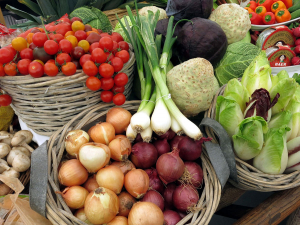It is predicted that the monthly Food Price Index due to be released next week will show an easing in vegetable prices, with industry insiders saying the trend is set to continue as we head into winter.
John Murphy, grower and chair of Vegetable New Zealand Inc., says high Food Price Index results for vegetables from the beginning of 2022 are not a surprise, but seasonal factors point to there being better conditions ahead for vegetable growing.
“There’s been a lot of talk about pricing challenges facing all local industries and horticulture is no exception. April was a particularly difficult period as damage from Cyclone Fili in Eastern growing regions hit at the same time as fuel and fertiliser shortages and price increases due to the war in Ukraine,” Murphy says.
Jerry Prendergast, president of United Fresh New Zealand Incorporated agrees prices are improving.
“The good news is there are always measures shoppers can take to keep their budget in check. Top of the list would have to be – buy in season. The freshest vegetables that are at the height of their season and in plentiful supply will usually be the most affordable option, and they’re full of immunity boosting antioxidant,” says Prendergast.
“This week in supermarkets, you’ll see fresh broccoli heads retailing from $3.50 to $4 for two, while nutrient-dense greens such as silver beet are a bargain at $3.69 for a big bag and cauliflower is back to an affordable $3.99,” he says.
Carmel Ireland, project manager at the 5+ A Day Charitable Trust, notes that where possible, shoppers should prioritise healthy, vitamin-packed fresh vegetables as we head into the winter months to help with immunity.
“As the economy tightens, it’s going to be tougher for families to stay within their budgets. The cost of living is impacting consumers wallets globally and fresh food is no exception,” she says.
The benefits of eating fresh produce far outweigh the cost, advises Ireland.
“A couple of takeaway coffees can cost anywhere between $10-$13 depending on where you shop, or you can buy around $13 worth of fresh seasonal vegetables packed with nutrients and dietary fibre to feed the whole whānau for three or four days,” she says.
Seasonal crops aren’t an exact science and each month a different fruit or vegetable will be at its best so Ireland suggests shoppers should be flexible and look around for the best buys.
“A great example is avocado. Just a year ago, prices were as high as $5 each, with a good growing season and less product heading offshore due to shipping costs, shoppers have been thrilled at the prices we’ve seen in the past few months,” she says.
“Winter vegetable crops are coming in now and we will see great value carrots, cauliflower, broccoli, silver beet and more. Shoppers will find affordable, high nutrient options if they stick to seasonal products.”


















